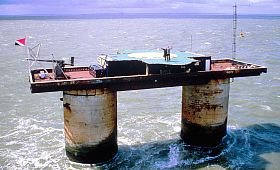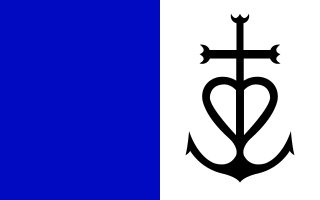
A micronation is a political entity whose representatives claim that they belong to an independent nation or sovereign state, but which lacks legal recognition by any sovereign state. Micronations are classified separately from de facto states and quasi-states; they are also not considered to be autonomous nor self-governing as they lack the legal basis in international law for their existence. The activities of micronations are almost always trivial enough to be ignored rather than disputed by the established nations whose territory they claim—referred to in micronationalism as "macronations." Several micronations have issued coins, flags, postage stamps, passports, medals and other state-related items, some as a source of revenue. Motivations for the creation of micronations include theoretical experimentation, political protest, artistic expression, personal entertainment and the conduct of criminal activity. The study of micronationalism is known as micropatriology or micropatrology.

Aigues-Mortes is a commune in the Gard department in the Occitania region of southern France. The medieval city walls surrounding the city are well preserved. Situated on the junction of the Canal du Rhône à Sète and the Chenal Maritime to Le Grau-du-Roi, the town is a transit center for canal craft and Dutch barges.

The Organisation internationale de la Francophonie is an international organization representing countries and regions where French is a lingua franca or customary language, where a significant proportion of the population are francophones, or where there is a notable affiliation with French culture.

The Agence universitaire de la Francophonie is a global network of French-speaking higher-education and research institutions. Founded in Montreal, Quebec, Canada in 1961, as the Association des Universités Partiellement ou Entièrement de Langue Française (AUPELF), the AUF is a multilateral institution supporting co-operation and solidarity among French-speaking universities and institutions. It operates in French-speaking and non-speaking countries of Africa, the Arab world, Southeast Asia, North and South America, Polynesia, the Caribbean, Central, Eastern and Western Europe. As of 2020, the AUF has 1,007 members distributed throughout francophone countries on six continents. It is active in 119 countries, and represented by regional offices and information centers on campuses and in institutes. The Association receives funding from the Organisation internationale de la Francophonie (OIF), and its headquarters are located at the Université de Montréal, Quebec.

The 2009 Jeux de la Francophonie, was an international multi-sport event held from 27 September to 6 October in Beirut, Lebanon.

Le Grau-du-Roi is a commune in the Gard department in southern France. It is the only commune in Gard to have a frontage on the Mediterranean. To the west is the Herault department and La Grande-Motte village, and to the east is the Bouches-du-Rhone department. Using the sea as a vantage point, the commune has four distinct sections: the right beach, the Village, the left beach, Port-Camargue and L'Espiguette. Immediately landwards are the large shallow étangs, saline marshes, which separate it from Aigues Mortes, a neighboring mediaeval walled city that used to be a port. The étangs are home to numerous flamingoes.
Micronations are ephemeral, self-proclaimed entities that claim to be independent sovereign states, but which are not acknowledged as such by any recognised sovereign state, or by any supranational organisation. The constant reiteration of the flag as a symbol of a something that exists by the entity that it symbolises confirms the validity of the flag as an officially sanctioned and/or definitive symbol of an entity; therefore, there has been a close association between vexillology/vexillogic imagination in creating visual symbols that appear to legitimise micronational claims.

L’Espace Francophone pour la Recherche, le Développement et l'Innovation, or the Francophone Area for Research, Development and Innovation is an international research consortium strengthening collaboration between North-South researchers and experts founded in 2008.

This is a list of the member states of the Organisation internationale de la Francophonie. These countries belong to an international organisation representing countries and regions where French is the first ("mother") or customary language, where a significant proportion of the population are francophones or where there is a notable affiliation with French culture.

The Grand Duchy of Flandrensis is a micronation with claims over some territories of Antarctica, which was founded in 2008 by the Belgian Niels Vermeersch. Flandrensis is not recognised by any country or government, nor it is in their intention to get diplomatic recognition. Since 2021 the micronation is registered in Belgium as the environmental non-profit organization “vzw Groothertogdom Flandrensis”.

The French language became an international language in the Middle Ages, when the power of the Kingdom of France made it the second international language, alongside Latin. This status continued to grow into the 18th century, by which time French was the language of European diplomacy and international relations.
MicroCon is a biennial summit of micronationalists held in odd-numbered years since April 11, 2015. The event was created by Kevin Baugh of the Republic of Molossia, and every summit since has been hosted by a different micronation.

The Francophonie is the whole body of people and organisations around the world who use the French language regularly for private or public purposes. The term was coined by Onésime Reclus in 1880 and became important as part of the conceptual rethinking of cultures and geography in the late 20th century.

The 2023 Jeux de la Francophonie, also known as IXieme Jeux de la Francophonie, informally Kinshasa 2023, took place in 2023 in Kinshasa, Democratic Republic of the Congo.

Canada–Madagascar relations are foreign relations between Canada and Madagascar. Both countries are full members of the Francophonie, United Nations and the World Trade Organization.

The Principality of Snake Hill, also known simply as Snake Hill is a self-proclaimed independent sovereign state (micronation), located near Mudgee in New South Wales, Australia. Snake Hill has roughly hundreds of citizens, and claims land the size of Monaco. Snake Hill claimed independence on 2 September 2003, and Princess Paula claimed it was a right to secede, citing "The U.S., as you well know, seceded from England in 1776, It’s a remedial right, a last resort."
Isidore Ndaywel è Nziem, is a Congolese historian and linguist. He is the author of several essays, studies and other publications about the history of the Congo, including the overview work L'histoire générale du Congo: De l'héritage ancien à la République démocratique.

The Principality of Aigues-Mortes is a micronation that claims the city of Aigues-Mortes. It is not recognised by any country or government.
The Summit on the Rapprochement of Canadian Francophonies is a summit between the different francophone communities in Canada in June 2021.
The International Micropatrological Society (IMS) was an American learned society and research institute dedicated to the study of micronations. Founded in 1973 by Frederick W. Lehmann IV of St. Louis, Missouri, the IMS coined micropatrology as the study of micronations and micronationalism. It had documented 128 micronations and similar political entities by 1976.














